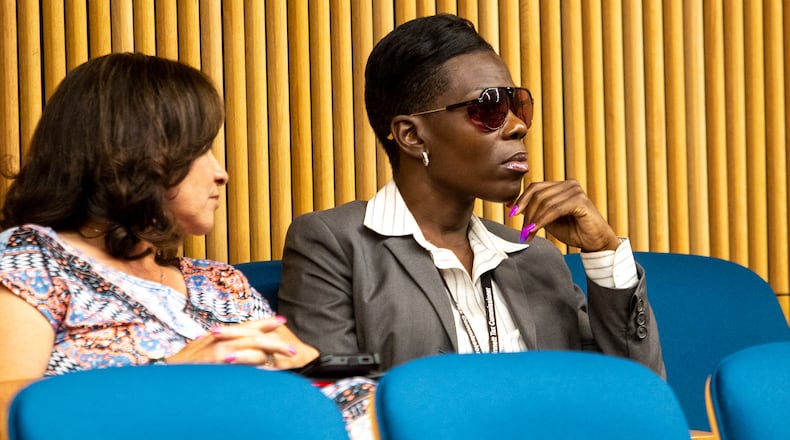Grayson residents will finally receive a bill for municipal taxes, bringing an uncertain dispute about tax collection to an end.
Gwinnett County Tax Commissioner Tiffany Porter will mail out revised bills to Grayson residents on Nov. 1, her office announced Monday. The bills will list both county and city taxes and be due by Jan. 1.
A Superior Court judge ruled in September that Porter must collect property taxes on behalf of Grayson, a city with less than 5,000 residents. The city filed a lawsuit against Porter after she declined to collect without personal compensation.
“We’re thankful,” Grayson Mayor Allison Wilkerson told The Atlanta Journal-Constitution on Monday. “We look forward to a good working relationship with the tax commissioner.”
Porter planned to challenge the judge’s order, but that’s no longer the case. Former Georgia Supreme Court Chief Justice Leah Ward Sears, who represented Porter in the lawsuit, told the AJC in a Monday email that they do not plan to appeal.
“Commissioner Porter determined that it was in everyone’s best interest at this time to settle with the City of Grayson as long as the city was willing to give her the additional time she needed to get the job done,” Sears said.
Grayson’s lawsuit came after Gov. Brian Kemp signed Senate Bill 201 into law earlier this year. The law stops tax commissioners in select counties from negotiating tax contracts with cities to increase their own pay and instead gives responsibility for negotiations to county commissions.
The state law currently affects only Fulton and Gwinnett because it only applies to counties with more than 50,000 tax parcels or 14 or more cities within them. Other tax commissioners in Georgia also raise their salaries by charging cities per-parcel fees for municipal tax collection.
The state Legislature hastily passed the bill after Porter, who took office this year, announced plans to charge eight Gwinnett cities a new $2-per-parcel fee for tax collection. The fees would have raised her $141,098 annual base salary by more than $110,000, making her the highest paid elected county official.
After the state law took effect, Grayson agreed in June to pay the county $1.80 per parcel for tax collection but not a personal fee to Porter. The city sued in July after Porter declined to honor the contract.
Porter challenged the constitutionality of the law since it currently only affects two counties. Sears argued on Porter’s behalf that the state Legislature “denied (Porter) freedom of contract and attempted to change the method by which tax collectors and commissioners have been paid for over a century.”
Georgia Attorney General Chris Carr and his office filed briefs in support of the constitutionality of the law. He argued that tax commissioners in large counties already earn higher base salaries than tax commissioners in small counties, hence the distinction between counties with or without 14 or more cities within them.
Carr and Grayson City Attorney Lee Thompson argued that the law does not unconstitutionally target any particular tax commissioners. Tate agreed in her ruling.
The revised bills sent to Grayson residents will reflect total taxes for 2021. If the county portion has already been paid, it will be reflected as a credit on the bill.
“It just makes sense to have it all on one tax bill,” Wilkerson said. “It’s easier for the residents.”
Grayson was the only city in Gwinnett County to test the new law with a city-county agreement without a personal fee. After Porter tried to institute the fee, the cities of Lawrenceville, Lilburn, Snellville and Sugar Hill decided to collect property taxes on their own. Dacula plans to collect on its own starting next year.
Dacula and Peachtree Corners will pay Porter $2 per parcel for her to collect this year’s taxes. Berkeley Lake will pay $1 per parcel. Altogether, the fees will boost Porter’s salary by more than $34,000. The three cities will also pay the county $1.80 per parcel for collection.
Porter’s office mailed out tax bills for the county and these three cities in August, which became due earlier this month.
About the Author
The Latest
Featured

